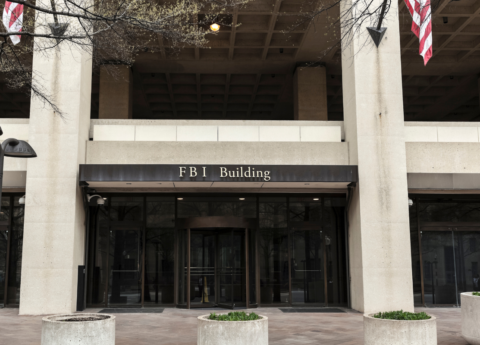Excessive fines and fees imposed through the criminal legal system drive up incarceration and perpetuate poverty in Kentucky, according to new research from the Vera Institute of Justice.
Local and county governments across Kentucky have become increasingly reliant on revenue from these fines and fees to fund their operations, including the criminal legal system itself, even as the state dramatically reduces its main historic source of revenue through income tax cuts. Vera researchers found that these costs are often unaffordable for Kentuckians, and recommend state policymakers take action to reform an inequitable system that denies too many Kentuckians the opportunity to disentangle themselves from the criminal legal system and build the lives they want.
Kentuckians who are system-involved are subject to a wide range of fines and fees
When an individual becomes involved with the criminal legal system in Kentucky after being charged with a crime, there are fines and fees assessed at nearly every step of the case-resolution process. Failure to pay carries steep consequences.
Arrest-related fees
If a criminal charge leads to incarceration at a county jail in Kentucky, the person who is incarcerated may be required to pay jail booking and processing fees, boarding fees (also known as “pay to stay” fees) of up to $50 per day, as well as charges for any medical or dental treatment received while incarcerated. Commissary purchases and telephone calls made while incarcerated also come with a hefty price tag. Jails make money off commissaries and phone calls, and the private companies running these services also take a cut. Additionally, Kentucky law allows jailers to charge a “bond acceptance” fee for those whose loved ones are able to post their cash bond.
According to the Vera report, from 2007 to 2020, Kentucky counties – not including Jefferson and Fayette – collected over $53 million from jail boarding fees and an additional $8.2 million from bond acceptance fees.
Jails can automatically take a portion of any balance in an individual’s commissary account if that person owes any of these jail-based fees. Some counties even contract with private debt collection agencies to collect unpaid jail fees once a person owing these fees is released.
Court and charge-specific fines and fees
When a criminal case is resolved (either by a plea or a finding of guilt at trial by judge or jury), additional fees can be levied against an individual depending on the type of case, either instead of or in addition to incarceration: $250 for a Class B misdemeanor or a violation, $500 for a Class A misdemeanor, and $1,000 to $10,000 for felonies. In cases where the conviction is for stalking or a sex offense, there is an additional and separate $30 fee. On top of all that, court fees of $100 are added to all criminal cases in district and circuit court. The majority of this $100 goes to the state General Fund, while a portion goes to the local sheriff, the correctional facility construction authority and deputy clerk salaries.
None of these costs include other case-specific costs that may be imposed, such as restitution.
Supervision fees
Kentucky has the 7th-highest “community supervision” rate in the country, with 2,008 out of every 100,000 adults in the state on probation or parole. Although community supervision is generally viewed as a positive alternative to incarceration, it comes with substantial costs.
Everyone on community supervision is ordered to pay a monthly supervision fee. Supervision fees can begin at $10 per month, but often cost more, and are set by the sentencing judge. State law allows higher supervision fees in urban areas, and non-payment can result in revocation of one’s sentence, which means going to jail or prison.
Depending upon the conditions of an individual’s supervision, there are likely to be additional costs such as drug and alcohol testing fees, mandatory class fees (such as anger management classes or parenting classes) and electronic monitoring fees. Often, the state contracts with private, for-profit companies to run electronic monitoring, and there is little oversight by the state regarding how much is charged and how much is made in profits.
Inability to pay fines and fees prolongs system-involvement, increases incarceration
Vera researchers spoke to Kentuckians across the state who explained how their inability to pay fines and fees made them more likely to be reincarcerated and extended their time on community supervision. Low wages, which are common in Kentucky, especially for workers with criminal records, combined with fines and fees only make those who are justice-involved poorer.
The report finds that Kentucky’s rural communities bear the burden of incarceration. Rural incarceration rose more than 550% from 1983 to 2019. This increase coincided with growing economic problems in rural areas, including the loss of jobs and income from traditional industries like coal, manufacturing and tobacco.
Kentuckians described struggling to find high-paying jobs in their counties that allow them to both meet their basic needs and pay their court obligations. “I wish there wasn’t so many court costs,” said Jessica, one of the Kentuckians interviewed by Vera researchers. “I don’t make that much, and it’s hard for me to come up with all that money at one time. You’re always afraid if you don’t pay your fines, that you’re going to jail.”
Ultimately, if someone owes money on a court case and is on supervision, that supervision can be extended indefinitely until the costs are paid. Sometimes, the individual can serve jail time in lieu of paying the remaining balance – a practice that only further penalizes being poor.
Reliance on fines and fees creates perverse financial incentives for government to further entangle residents in the carceral system
Hit the hardest by incarceration and deindustrialization, rural communities have turned to the criminal legal system as a way to replace lost revenue. Rather than raising taxes to increase revenue or reducing incarceration to cut costs, levying criminal fines and fees has become a preferred way to fund government operations. Counties increasingly rely on the collection of jail fees, court and offense-related costs, and supervision fees. As a result, non-payment means less money to fund local law enforcement, the court system or the coroner’s office, creating a heightened incentive for judges to further impose, collect and perhaps jail people for failure to pay fines and fees.
This practice of increased reliance on fines and fees for revenue exists despite research from other states showing that fines and fees are an inefficient source of revenue. It often costs the government more to assess and collect the owed fine or fee than the fine or fee itself is actually worth. Additionally, many fines and fees are assessed without ability to pay considerations and many are never collected in full. Instead of raising taxes more broadly and basing them on ability to pay, the broken fines and fees system depends on an unstable revenue source that further increases vulnerabilities facing some of the poorest Kentuckians.
The rise of substance use disorders, the overdose crisis, and criminalization of drug use is linked to this rise in reliance on fines and fees as well as broader community economic decline. Workers locked out of the mainstream economy sometimes turn to illegal forms of work to cope and survive. Until very recently, the response to substance use disorder has been harsher criminal penalties, in a misguided attempt to “clean up” the communities in order to attract more industries and jobs and curb substance use. But criminalization tends to deepen these problems and add public expenses that could be better used on real solutions that address root causes of poverty and reduce the harms of addiction.
Kentucky tried to reform fines and fees issues with Senate Bill 120 (2017), but more is needed to repair harms
In 2017, the Kentucky General Assembly recognized that the criminal fines and fees system needed reform, and passed Senate Bill (SB) 120 to help reduce the number of Kentuckians jailed for failure to pay fines and fees. SB 120 amended multiple state laws relating to a person’s ability to pay. It encouraged judges to make ability to pay determinations for all court cases, allowing a judge to ask questions about a person’s financial situation, employment, dependents and assets to decide whether or not to reduce, adjust or waive certain costs. However, the law simply allowed judges to make these changes, and did not require that they waive fees deemed to be burdensome based on the person’s financial situation.
Today, in actuality, judges can and do still issue warrants for non-payment and the scale of indigency is only a “guiding tool,” rather than a strict set of rules that is uniformly followed statewide. As a result, Kentuckians who are unable to afford these payments often find themselves incarcerated or reincarcerated, all depending upon which judge presides over the case and that judge’s subjective opinion on whether the costs are burdensome and/or the non-payment has been willful.
In order to repair harms of the fines and fees system in Kentucky, and give Kentuckians who are justice-involved the supports they need to be successful, Vera’s report recommends that state policymakers:
- Eliminate the use of jail time for unpaid court debt.
- Standardize and require ability to pay determinations.
- Create alternatives that allow people to participate in community-based programs in lieu of paying fines and fees.
- Invest in quality job creation that is accessible to Kentuckians with criminal histories.
- Set community supervision conditions that are individualized to the person on supervision and their specific circumstances.




